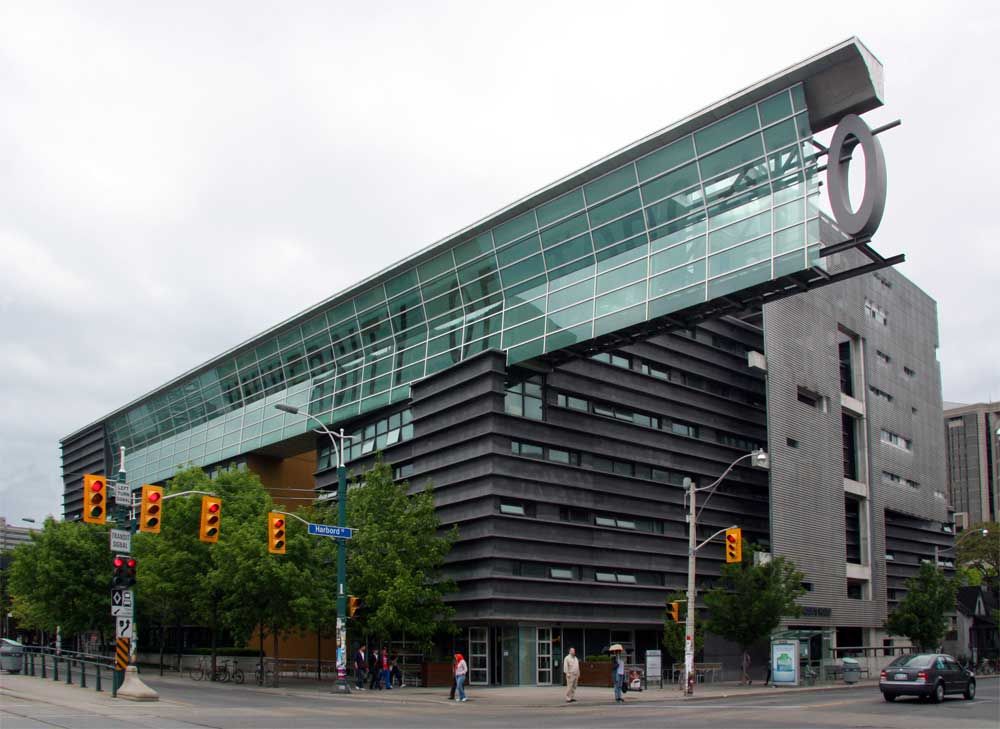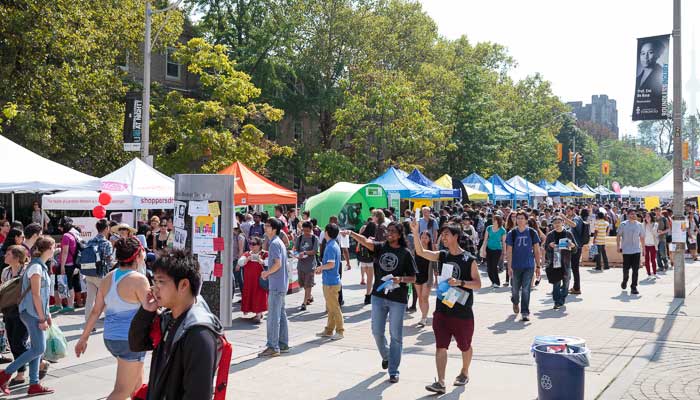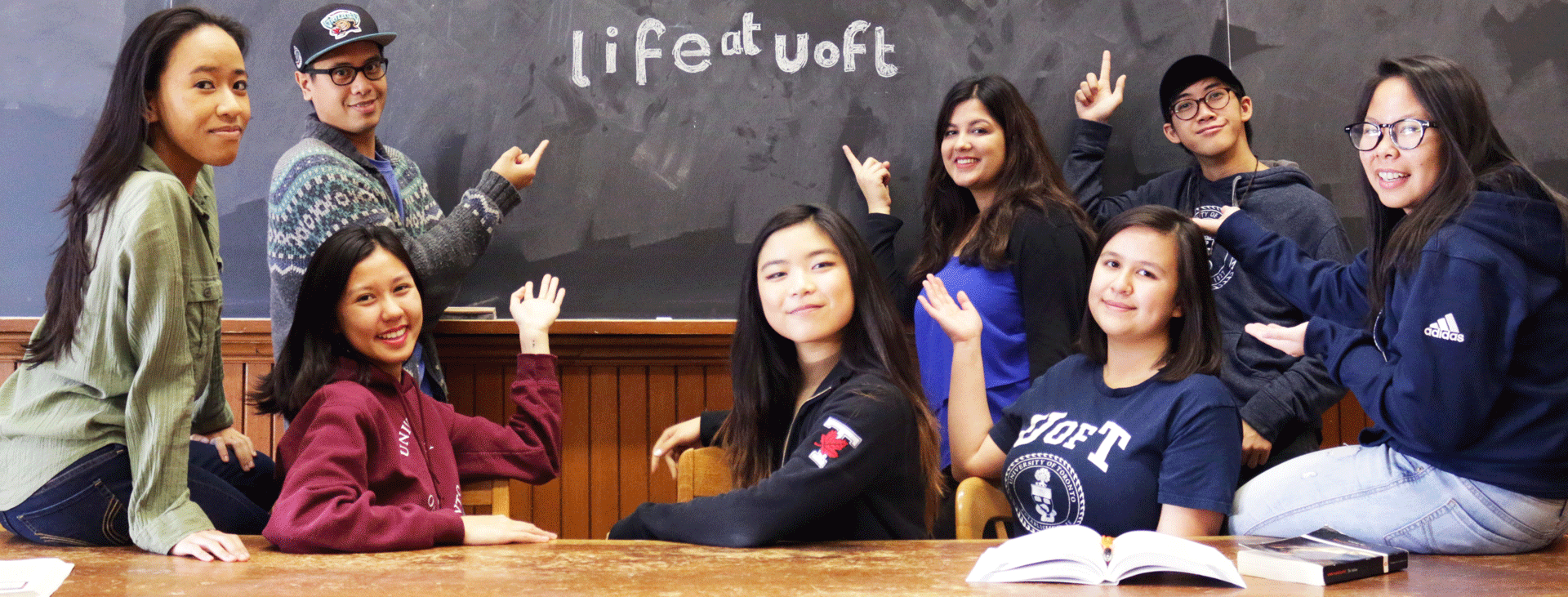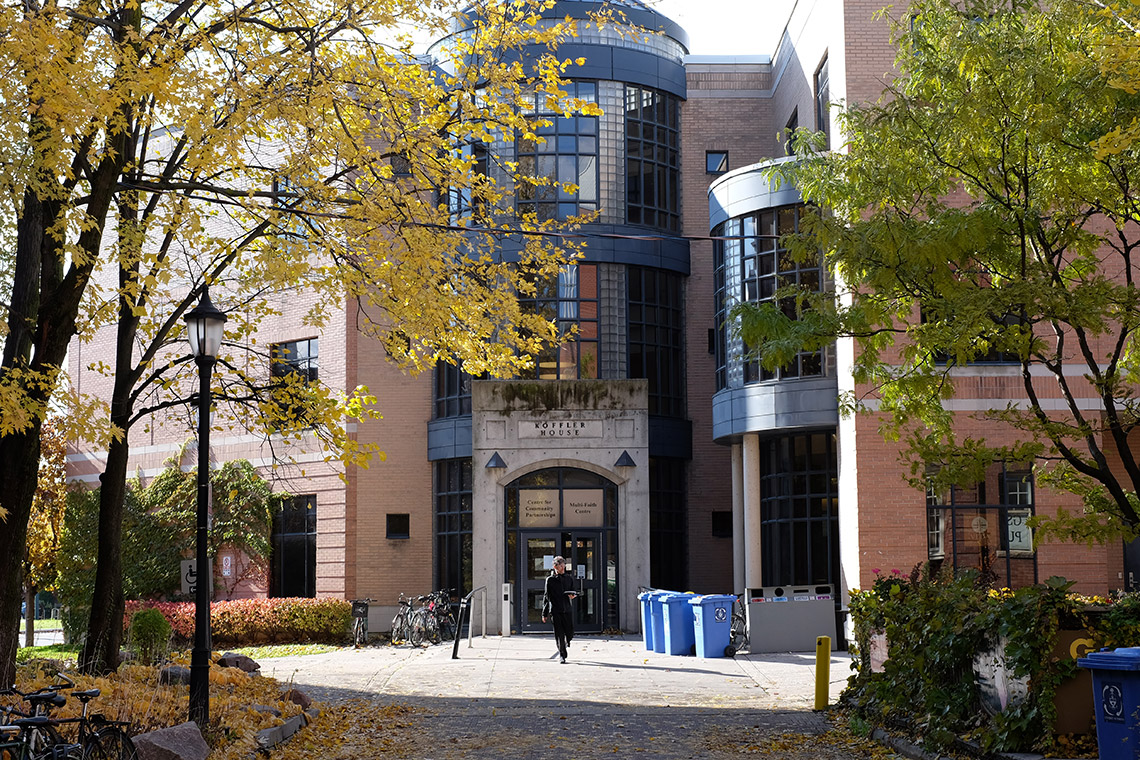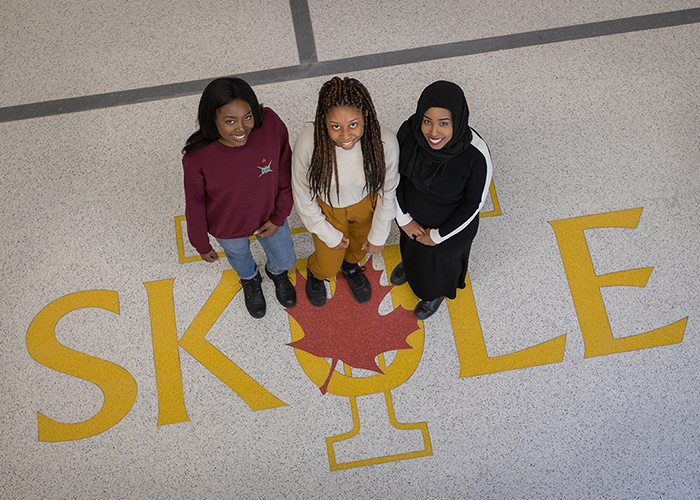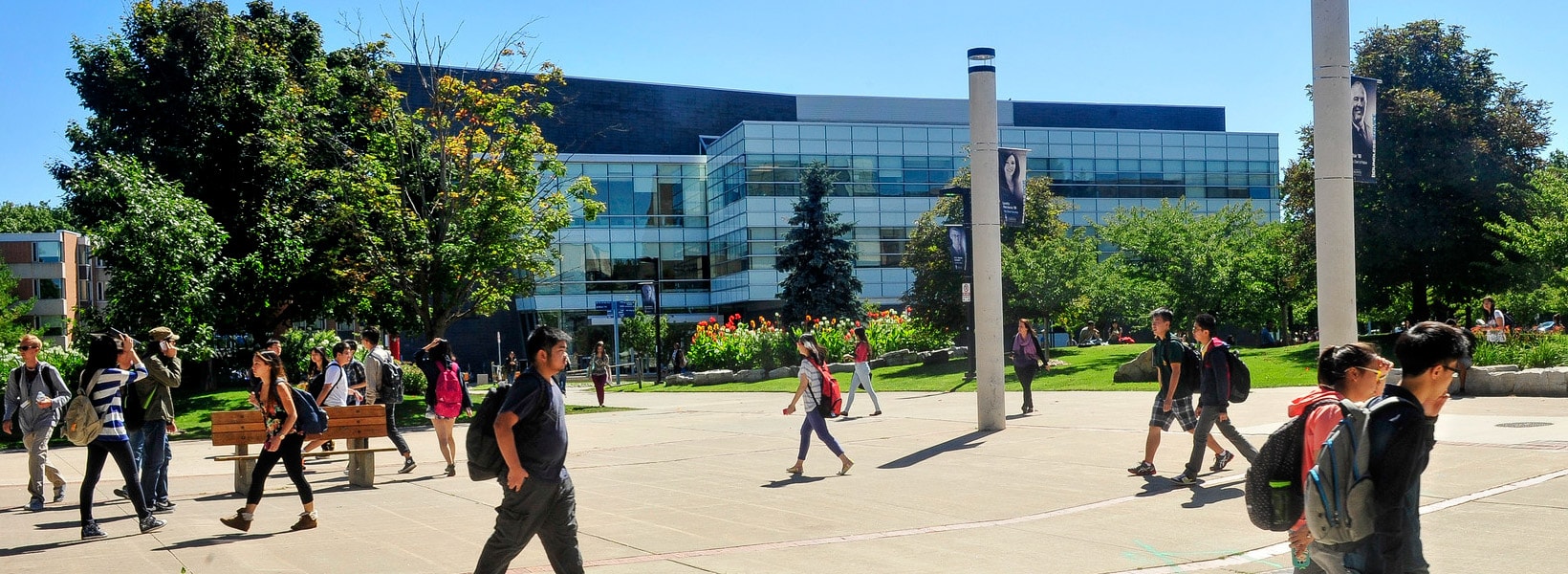Getting Started
Welcome to U of T! This page is designed to help you get set up in Canada, Toronto, and at U of T. View it as a sort of “checklist” that will help you on your way to feeling comfortable and connected in your new home. Click on the boxes below for more information.
On This Page
Before You Arrive
Congratulations on your acceptance! Here are some ways you can start getting set up before you arrive on campus.
Welcome to Toronto
Toronto is Canada’s largest and most multicultural city. Whatever you’re into and wherever you are from, you belong here.
Welcome to U of T
Keep exploring…
Enrolment & Registration
What’s the difference between registration and enrolment? To register, you pay your tuition and incidental fees, or make an arrangement to register without payment (fee deferral). To enrol, you add yourself to courses.
Course Enrolment
Most graduate units allow you to enrol in courses through ACORN, but some graduate units require you to fill out a form. Consult your home graduate unit for detailed instructions and the SGS Sessional Dates for course enrolment deadlines. For course enrolment opening dates, check with your graduate unit.
Fee Payment to Register
Check out the SGS Sessional Dates to see the registration (payment) deadline for students registering or starting their program in the fall session. Before you pay to register, clear any outstanding admission conditions stated on your offer letter, if applicable, or contact your home graduate unit.
To register on time, pay your tuition and incidental fees, or arrange to register without payment (fee deferral) by the deadline. Detailed instructions on how to pay tuition fees, including making a fee payment from outside of Canada, are found on the Student Accounts website. To find out how much you owe, check your invoice on ACORN. For information about service charges visit the Graduate Fees page.
Fee Deferral
You may request to register without payment (fee deferral) through ACORN if you:
- clear any outstanding admission conditions stated on your offer letter, if applicable, by contacting your home graduate unit to confirm if you can defer your fees; and
- meet all of the eligibility conditions stated on the Students Accounts website.
If your offer letter includes admission conditions, contact your graduate unit to confirm if you can register without payment.
Find out how to defer fess on ACORN.
Late Registration
If you miss the deadline to register without financial penalty, your course enrolment will be cancelled. Once the deadline has passed, you will be required to pay a late fee of $44. This is done online by filling out the Late Registration – Fee Payment form, available through the SGS Portal.
For more information, please visit the Registration & Enrolment page.
For International Students
Please also be aware that if your legal status changes while you’re studying at U of T, you may be eligible for an International Fee Exemption, permitting you to pay domestic tuition fees. Find out more about international fee exemptions.
The stage you’re at in your program when your legal status changes may impact the minimum degree fee you’ll be required to pay. For details, please consult the Fees section in the SGS Calendar.
Questions? Email SGS Student Academic Services or call 416-978-6614.
Accessing Online Resources
If you’re a new student, get connected with your JOINid, TCard, UTORid, UTmail+, and more.
Before You Arrive
- The University of Toronto issues a JOINid to applicants so that you can access key online services before coming to campus and getting your UTORid. You should have received an email with your JOINid and instructions for enabling it at uoft.me/enable. If you’ve lost the email or didn’t receive it, please contact us at admissions.sgs@utoronto.ca.
- Before arrival, you can use your JOINid and existing email address for residence applications and to access your student account on ACORN.
- If you received your JOINid on a previous application and have lost your password, repeat the enabling process at uoft.me/enable to reset the password. The new password may need up to 72 hours to take effect.
- If you are a returning student or staff member and your ID has already been promoted to a UTORid, please contact help.desk@utoronto.ca.
ACORN
ACORN stands for Accessible Campus Online Resource Network. It is your student web interface to enrol in courses, check fees and finances, and perform registration tasks such as updating address and contact information. It provides a convenient, personalized, and guided experience for using U of T’s online services.
Check out the video below to learn about ACORN.
Questions? Visit ACORN Help.
TCard
Your TCard is your identification for academic purposes. It includes your photo, UTORid, student number (or personnel number, for staff and faculty) and a barcode. When you are on campus, you will need your TCard for access to services and facilities such as libraries, athletic facilities, exams, meal plans, online learning portal, printing services, and more. Make sure to bring the required documentation listed on the TCard website with you when you get your TCard.
Learn how to get your first TCard, and how to use or replace it.
Activate your UTORid and UTMail+
Your UTORid (with password) is your key to a number of U of T services including: UTmail+, campus wireless, ACORN (your student information service), Quercus (U of T’s academic technology toolbox, powered by Canvas, where you can access course content, view your course progress, and submit assignment files), library services, UTAlert, CLNx (U of T’s career and co-curricular learning network), and more.
Learn how to activate your UTORid. If you have any questions about your UTORid, please visit the UTORid website or contact the Information Commons Help Desk.
Check out the video below to learn how to activate your UTmail+ email address.
Quercus
Quercus is the University of Toronto’s academic technology toolbox, powered by Canvas. You can access course content, view your progress in the course, and submit assignment files.
Mentorship
Are you an international student? Check out the International Student Experience (ISE) Ambassador program.
Are you new to Accessibility Services or to U of T? Check out the Access Us Peer Mentorship Program.
Want to ask an expert about U of T? Sign up for one of these events on Facebook.
International Students
We know moving to a new country, city, and starting graduate school at the same time can be an overwhelming transition. Check out our Before You Arrive page with everything you need to know and to get familiar with U of T campus offerings.
Centre for International Experience
The Centre for International Experience (CIE) offers a range of programs and services to support international students, as well as global learning opportunities for all students.
Visit the CIE website to learn more.
International Student Services
Are you an international student? Do you have a question about your legal status in Canada, your healthcare coverage for you and your family, or how to file your taxes? International Student Services at CIE is available to help ensure you have a smooth transition and have the resources you need to succeed at U of T.
Grad Step Up
All incoming international students are invited to take part in the CIE’s Grad Step Up! Come spend the afternoon in person with us as we welcome you to U of T and the St. George campus.
Register for Grad Step Up.
September 11, 2024
4-7 PM
Centre for International Experience
Cumberland Room, 33 St. George Street
Accessibility Advising for Graduate Students
Graduate students with a documented disability, whether ongoing or temporary, have unique needs. That’s why the School of Graduate Studies has a designated accessibility advisor who can discuss accommodations for all kinds of graduate-specific contexts. Whether you’re working in the lab or doing field research, preparing a dissertation or completing your final oral exam, support is available.
Learn about Accessibility Services and register early to request a referral. Once registered, you can also access drop-in advising hours at the School of Graduate Studies.
Visit the Accessibility section on the SGS website to learn about Accessibility Services at UTM, AccessAbility Services at UTSC and library accessibility.
Graduate and Professional Program Student Handbook
The Accessibility Services Graduate and Professional Program Student Handbook (PDF) is designed as a roadmap to help you navigate the accommodations process, as well as the services and supports available at Accessibility Services on the St. George campus.
Travelling
Whether you’re coming by car, public transit, bike, on foot or by any other means of transportation, here are some tips on finding your way to our three campuses.
Orientation for Graduate Students
Graduate school is a very busy time, and a graduate education at the University of Toronto offers unparalleled professional and personal opportunities to learn and grow in different ways.
SGS Graduate Orientation
The School of Graduate Studies Fall 2024 Orientation will take place on Thursday, August 29 from 2 p.m. to 5 p.m. in Convocation Hall. Join us as we welcome you to U of T and help you understand the many services and supports available.
Read more about SGS Graduate Orientation and register.
Gradlife Orientation
Gradlife encourages all incoming graduate students to participate in orientation sessions in August, September and January to learn about strategies for success in grad school, hear about grad specific resources and connect with other incoming graduate students.
Learn more about Gradlife’s orientation programming and register today.
Indigenous Welcome
Statement of Acknowledgement of Traditional Land
We wish to acknowledge this land on which the University of Toronto operates. For thousands of years it has been the traditional land of the Huron-Wendat, the Seneca, and the Mississaugas of the Credit. Today, this meeting place is still the home to many Indigenous people from across Turtle Island and we are grateful to have the opportunity to work on this land.
The Land Acknowledgement is a formal statement recognizing the unique and enduring relationship that exists between Indigenous Peoples and their traditional territories.
University of Toronto’s Indigenous Gateway
The Indigenous Gateway website provides an overview to the Indigenous community, initiatives, services, and academic programs on all three U of T campuses.
First Nations House/Indigenous Student Services
Provides culturally relevant services to Indigenous students, as well as opportunities for all students to engage with Indigenous communities within U of T and beyond. Resources include academic support, financial assistance, Indigenous community, and meetings with Elders and traditional teachers. Learn more about First Nations House.
Supporting Aboriginal Graduate Enhancement (SAGE UT)
Operating out of the Centre for Aboriginal Initiatives (CAI) at the University of Toronto’s St. George campus, this graduate student-led group plans workshops, presentations, meetings and other events promoting the academic and personal development of Indigenous graduate students. Learn more about SAGE.
UTM – Office of Indigenous Initiatives
The Office of Indigenous Initiatives (OII) at UTM works to mobilize U of T’s commitments to Truth and Reconciliation as outlined in Answering the Call – Wecheehetowin. Following the recommendations of the report, the OII guides UTM’s efforts in amplifying Indigenous voices and Indigenous placekeeping on campus. Find out more about the Office of Indigenous Initiatives.
UTSC – Indigenous Outreach Program
Indigenous programming, engagement and outreach at UTSC includes traditional teachings by the Indigenous Elder-in-Residence, leadership development workshops and experiences, educational and cultural events, and community outreach to the significant Indigenous population residing in the East Scarborough area. Find out more about the Indigenous Outreach Program.
Life in Toronto
Looking for general information about living in Toronto? The City of Toronto has a helpful website about Moving to Toronto for newcomers to the city. You can also read this general introduction to living in Canada provided by the Government of Canada.
Graduate Roadmap
The Graduate Roadmap is a resource for incoming international graduate students for their journey at the University of Toronto. Each stage of this journey includes checkpoints and milestones, to keep an eye out for, and includes important resources to support students.
Housing
Graduate House
The only residence at U of T reserved exclusively for graduate and second-entry professional faculty students. Please see the Graduate House website for more information or take a virtual tour of the residence.
University Family Housing
University Family Housing offers apartments for student families and faculty in the heart of downtown Toronto. Visit the University Family Housing website to learn more.
St. George campus in downtown Toronto – Housing Services
If you need to find housing, the staff at Housing Services can help. Use your UTORid to log in to the off-campus housing finder for more than 10,000 listings near U of T campuses with pre-approved landlords looking for student tenants. If you need a roommate, check out the Roommate Finder to meet other students looking for shared housing. You can also access the buy-and-sell board. Please visit the Housing website to learn more about the services provided.
U of T Mississauga – Student Housing & Residence Life
Bachelor apartments for grad students feature wi-fi, laundry facilities and close proximity to all the facilities and services on campus. Check the Student Housing & Residence Life website for eligibility, information and important dates.
University of Toronto Scarborough – Student Housing & Residence Life
Only undergraduate students can apply to live in residence at UTSC, but graduate students are encouraged to visit the University of Toronto off-campus housing listings and Student Housing & Residence Life website. You can also get advice and support at the Student Housing & Residence Life office. Learn more about housing options at UTSC.
Transportation
Check out some tips on transportation and a guide to getting around campus.
Discover more ways you can move around in Toronto:
- UTM Shuttle Bus – For travelling between the St. George and Mississauga campuses.
- Bikechain – A not-for-profit cycling organization providing DIY services, affordable repairs, educational opportunities and a welcoming community of staff and volunteers.
- Bike Share Toronto – Toronto’s bicycle rental service has stations on campus and around the city.
- UTM – Bikeshare – Offers free 48-hour bicycle loans, as well as bike-related events throughout the year and group rides.
- TTC (Toronto Transit Commission) – Route maps and schedules, closure notices and service advisories.
- Discounted TTC PRESTO cards – Visit the PRESTO website to learn how to register and load your PRESTO Card with a post-secondary student monthly metropass.
- GO Transit – Bus and train service for travel around the Greater Toronto Area and Southern Ontario.
- UTM – MiWay (Mississauga Transit) – Public transportation for getting around Mississauga, with connections to TTC and GO Transit. Schedules, maps and Student PRESTO cards are available online.
- UTM – Parking & Transportation Services – Buy parking permits for the UTM campus, get maps and directions and access alternative transportation options.
Multi-Faith Centre
The Multi-Faith Centre provides an inclusive space for you to engage in community, where you can learn, grow and explore diverse cultural and spiritual perspectives.
Find out more about the centre’s programs and services.
Funding & Awards
In order to make informed decisions about your future, it’s important to have a clear understanding of the graduate funding landscape – an awareness of your program’s funding context and of the financial opportunities and supports available to you between admission and graduation.
If you’re a student in a professional master’s, flex-time or professional doctoral program, you’ll typically self-fund your educational expenses through a variety of programs including student loans, student lines of credit, savings and employment income. You may also be eligible for a limited number of graduate awards available through your graduate unit and various external agencies.
Most research-stream master’s and PhD programs at the University of Toronto offer a range of financial supports to offset the cost of a graduate education. The amount and type of student support varies among graduate programs; if you’re registered full-time in a research-stream program, your own graduate unit will outline your financial support in an annual funding letter. Your funding letter will also identify the sources of funding that you’ll receive (for example, teaching assistantships, awards, research stipends, and/or fellowships), along with a payment schedule to help you plan your finances throughout the year.
On an annual basis, the School of Graduate Studies publishes base funding amounts and actual average incomes – in addition to average times to complete a degree – for graduate units across the university. Available online, this information will allow you to compare units and divisions, and help you set expectations about your own program of study. Learn more about how funding works.
You are also encouraged to explore the wide range of financial supports available to U of T graduate students in the form of scholarships and merit-based awards. Be sure to visit your home department’s and faculty’s website for funding opportunities and financial supports available to students in your program as well as the SGS Awards and Funding page for more.
Remember, if you’re thinking of applying for scholarships, awards and student loans, plan ahead! Give yourself enough time to:
- Review your budget using the U of T Financial Planning Calculator.
- Research and apply for government student loans.
- Explore financial aid & advising services offered by the School of Graduate Studies throughout your studies.
- Visit the various external funding agencies’ websites to plan out the application process.
- Take advantage of relevant information sessions. The SGS Graduate Awards Office offers these in early fall.
- Register for workshops and courses to help improve your applications. The Graduate Centre for Academic Communication is an excellent resource.
- Start thinking about reference letters.
Rankings & Discoveries
The University of Toronto is widely recognized as one of the world’s great institutions of higher learning. Since 1827, our dedication to furthering global knowledge has given birth to groundbreaking discoveries and publications in virtually every field. And the School of Graduate Studies has helped foster some of the biggest advancements of our time.
Learn more about our position in world university rankings and find out more quick facts about U of T.
Campus Athletics
U of T offers a range of facilities and programs for athletics recreation on each of its three campuses, from intramurals to varsity teams.
Learn more about keeping active on the Mississauga, St. George and Scarborough campuses.
2SLGBTQ+ Students
Sexual & Gender Diversity Office (SGDO)
The Sexual & Gender Diversity Office (SGDO) is a tri-campus equity office that provides innovative education, programming, resources and advocacy on sexual and gender diversity for all members of the university community. Visit the SGDO’s Resources area to connect with a 2SLGBTQ+ campus group or organization, find on-campus housing arrangements, learn how to change your name, and more.
Positive Space
The university’s Positive Space Campaign seeks to create and identify safer and more inclusive spaces for 2Spirit, lesbian, gay, bisexual, trans, queer, and other sexual and gender diverse students, staff, faculty, librarians and allies at the University of Toronto.
Learn more about Positive Space at U of T.
Equity, Diversity & Inclusion at U of T
The University of Toronto has a longstanding and fundamental commitment to promoting equity, diversity and inclusion (EDI) and emphasizes a working and learning environment for everyone. We recognize that a diverse campus and a culture of inclusive excellence are essential parts of the foundation of our institution.
Read more about EDI at U of T.
Equity Offices
U of T’s equity offices provide specialized support and programming to the university community on various issues related to EDI including consultation services, resolution of concerns, as well as training and education. Meet U of T’s EDI leads.
One University, Three Campuses
Learn more about U of T’s three campuses and life on the campuses.
Take a virtual tour!
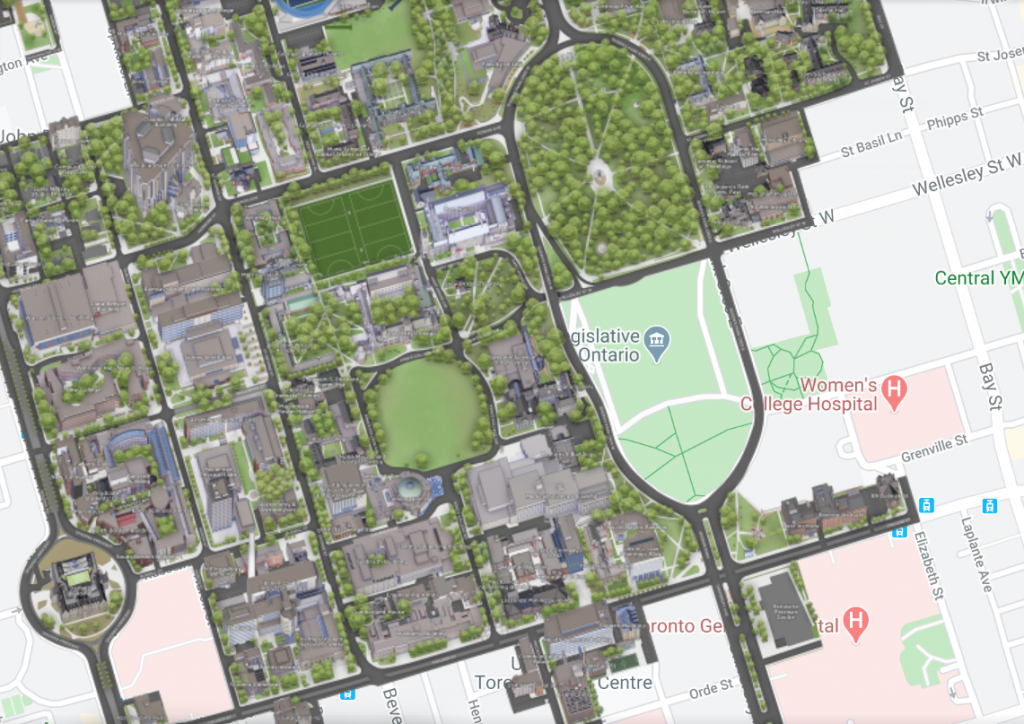
Tri-Campus Sustainability Offices
The Sustainability Offices on the three campuses are on a mission to develop and promote a culture of sustainability and a broad range of initiatives through the engagement of each local community. They act as hubs of sustainability awareness, services, and collaboration, empowering students, faculty and staff to be agents of positive change both on and off-campus.
Student Life
Beyond the classroom, Student Life advances student success through experiences, services and facilities. Visit the Student Life Program & Services Directory to find out more.
UTM – Student Affairs and Services
UTSC – Student Life Programs
Gradlife
Gradlife is a hub for graduate support and finding community on campus that helps graduate students navigate the grad school experience at U of T.
Black Students
Anti-Black Racism Task Force
The U of T institutional Anti-Black Racism Task Force aims to address anti-Black racism and to promote Black inclusion and excellence within the University of Toronto.
Visit the task force website to learn more.
Resources for Black Students
Check out the resources available for Black graduate students by campus.
St. George campus: Student Life Black Hub
Mississauga campus: Black at UTM
Scarborough campus: Black Student Engagement and Academic Programming for Black Students
Black Students’ Association
The Black Students’ Association remains dedicated to the education, experience and empowerment of the Black-Canadian and international community, aiming to represent and foster Black culture through community interaction and outreach.
Black Graduate Students’ Association
The Black Graduate Students’ Association (BGSA) will engage in powerful discourse of local and international issues and experiences in the Black community.
Anti-Racism and Cultural Diversity Office (ARCDO)
The Anti-Racism and Cultural Diversity Office provides training and education, policy expertise, events and programs, dialogue facilitation, and other services in support of equity, diversity and inclusivity at the university.
About the section photo: U of T alumni Temisan Iwere, Kyra Stephen and Ayan Gedleh – executives in the U of T chapter of the National Society for Black Engineers in 2019 – organized the first university student-run Black hackathon in the GTA. (credit: Geoffrey Vendeville)
Campus Safety
Feeling distressed? There’s help. Visit the Safety & Support website for resources available.
Community Safety Office
The Community Safety Office (CSO) is a tri-campus equity office that offers short-term support and assistance to students, staff and faculty members of the U of T community who have experienced personal safety concerns.
Visit the CSO website to find out more.
Sexual Violence Prevention and Support Centre
The Sexual Violence Prevention and Support Centre (SVPSC) is here to help and support students, staff and faculty at the University of Toronto who have been affected by sexual violence or sexual harassment.
Visit the SVPSC website to learn more.
U of T Campus Safety App
Campus Safety and the Community Safety Office have partnered to release the official U of T Campus Safety App. This unique app integrates with U of T’s safety and security systems to help students, faculty and staff move more safely on and off-campus. It also provides campus safety alerts and access to academic and mental health supports — all tailored to your campus of choice.







